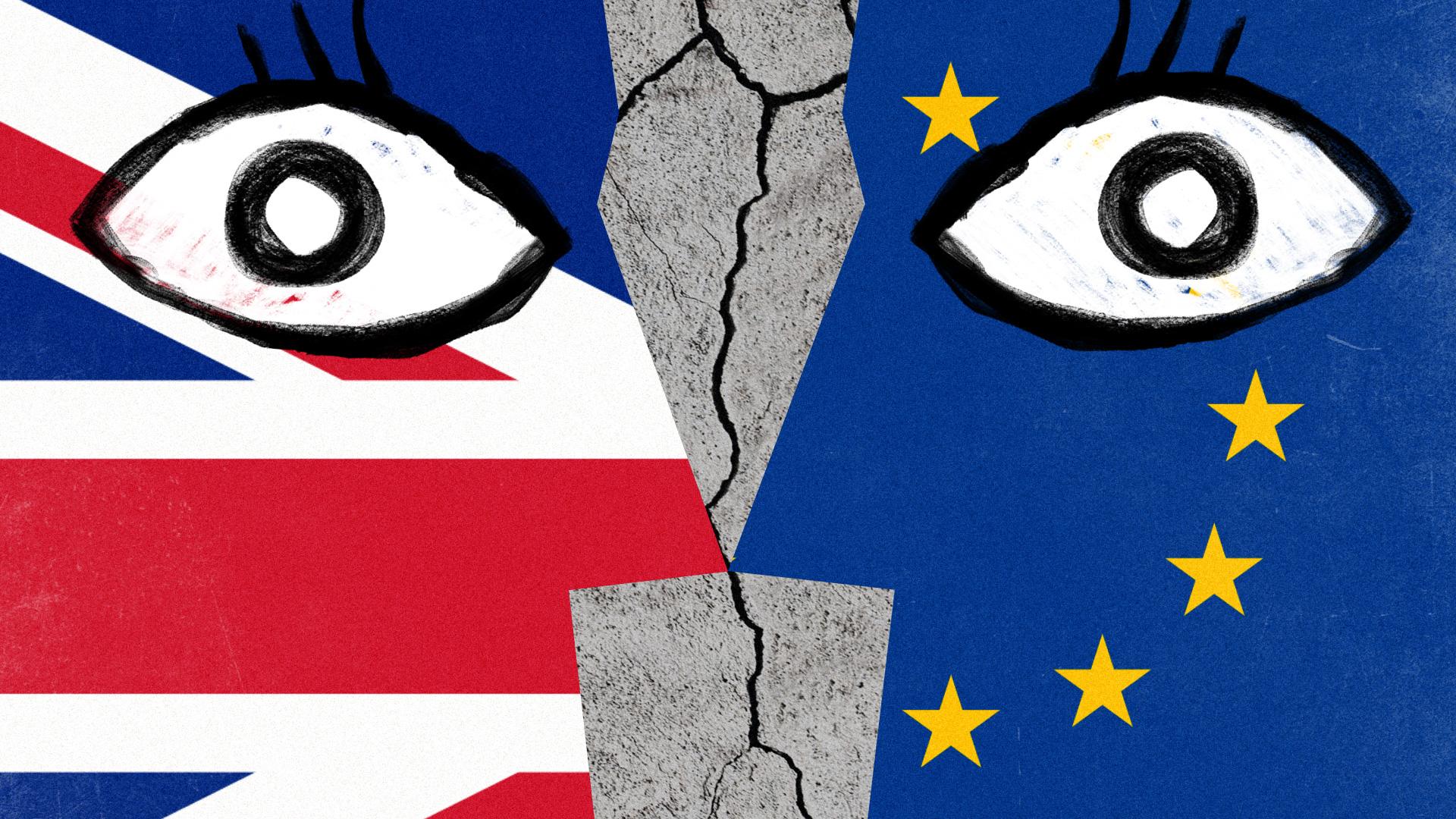Brexit: Border not addressed in no-deal plan as backstop only option
- Published
- comments
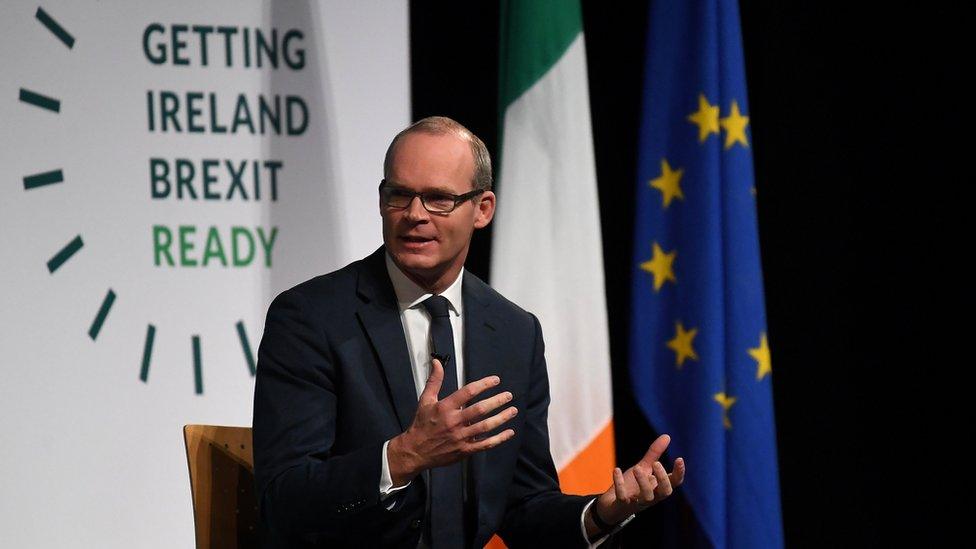
The Irish foreign minister has said the Irish border was not addressed in his government's contingency plan in the event of a no-deal Brexit because the backstop is the only solution.
Simon Coveney told Irish national broadcaster RTÉ that he hoped the draft deal would be ratified in January.
"For us to be giving signals that there's any other way this could be solved would be foolish," he said.
The Irish government is prioritising planning for a no-deal Brexit.
Its document outlines plans for 19 sectors should the UK leave the EU without a withdrawal deal, external.
It includes a move to purchase land at Dublin and Rosslare ports to deal with congestion caused by new custom checks.
Speaking on Thursday, Mr Coveney reiterated that in absence of a backstop and a Brexit deal preventing physical border infrastructure in Ireland would be "difficult and involve hard choices".
But he said it would not be helpful for document, which runs to more than 130 pages, to be "dominated by that border debate".
He added that there would be "responsibilities on London to do that given the commitments they have given and obligations towards protecting" the Good Friday peace agreement.
He rejected suggestions that the Democratic Unionist Party (DUP) would take issue with some of the Dublin and Rosslare border control and customs checks.
"The DUP are against a border down the Irish Sea between Britain and Northern Ireland," he said.
"The reality is that about half of all the product that goes into Northern Ireland from Britain comes through Dublin Port.
"Certainly Ireland will have to do what other countries will have to do.
"If Britain becomes a third country outside the European Union without a trade agreement in place, we will have to have customs checks, SPS checks and make sure all live animals are inspected and so on."
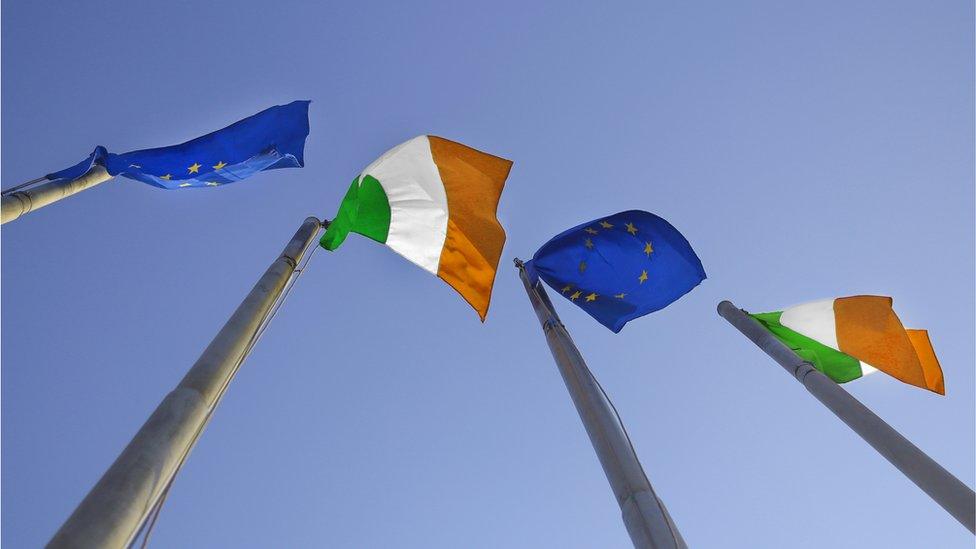
Ireland's foreign minister said the plan was "stark" but "comprehensive"
He said the government was planning for such a scenario in a "practical way" at ports and airports.
He said it would be "unlikely" an emergency budget would be required for infrastructure at ports and airports in the Republic of Ireland.
"We cant rule anything out but it's unlikely," he added.
"The north-south trade is more sensitive politically and will require much more complicated and difficult solutions, which is why the backstop and the deal on the table needs to be passed or people need to think very seriously about it.
If the UK left the EU without a deal it would cause significant stress to the Irish economy, he added.
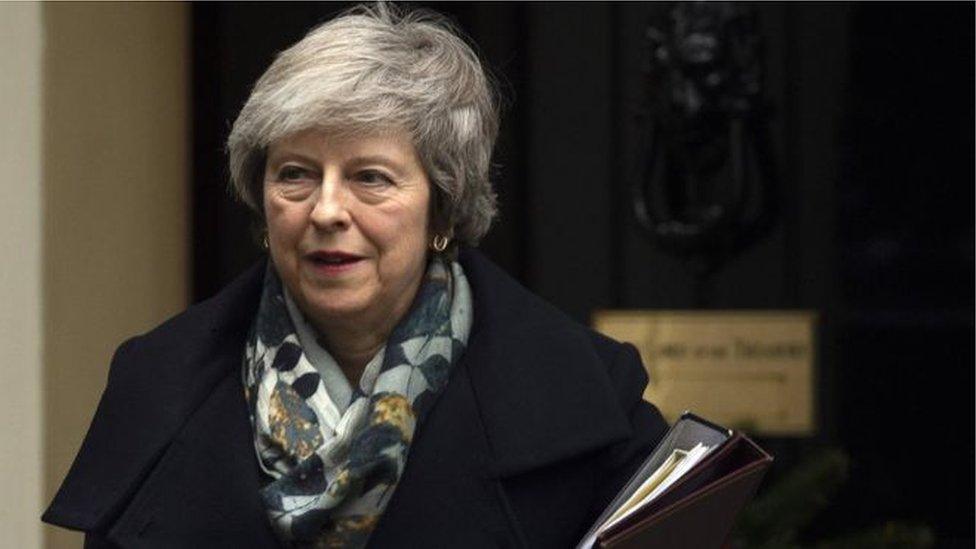
Theresa May's cabinet has decided to "ramp up" preparations for a no-deal Brexit
The UK government has given ministers £2bn it had set aside in case Brexit happens on 29 March without a withdrawal deal being accepted by the Commons.
Mr Coveney, who is also the tánaiste (deputy prime minister), said the Irish government's preparations for a no-deal Brexit had accelerated and that planning had been taking place for well over a year.
What does the document say?
The Irish government's paper warned that the country's economy could be the "most adversely affected" of all EU member states and that the country's security would also be "seriously impacted".
It said the Irish government is "now prioritising no-deal planning" and that any necessary no-deal legislation will be brought before the Dáil (Irish parliament) in January.
It outlines key plans, including:
A move to purchase extra land at ports in Dublin and Rosslare in County Wexford to handle congestion caused by new custom checks as well as measures to mitigate extra pressures on Dublin Airport
Extra staff for departments including the Irish Revenue and the Department of Agriculture, Food and the Marine
A commitment to maintaining law enforcement co-operation between the Republic and Northern Ireland
A focus on ensuring uninterrupted air travel between the UK and the EU in the event of a no-deal scenario
The document also acknowledges concerns among sectors in Northern Ireland, such as farming and business, in the event of a no-deal Brexit, and indicates that the Irish government will "try to mitigate the effects to the extent possible, while recognising that this will be primarily a matter for the British government and the Northern Ireland authorities".
Allow X content?
This article contains content provided by X. We ask for your permission before anything is loaded, as they may be using cookies and other technologies. You may want to read X’s cookie policy, external and privacy policy, external before accepting. To view this content choose ‘accept and continue’.
MPs will start debating Theresa May's Brexit bill again on Wednesday, 9 January. There will be five days of debate before the vote takes place.
Meanwhile, the head of the Northern Ireland Civil Service (NICS) said he had written to all 23,000 staff seeking "volunteers" for its contingency response to Brexit.
David Sterling said preparations included planning for no deal and a "worst case scenario" involving "sustained and widespread disruption".
- Published19 December 2018
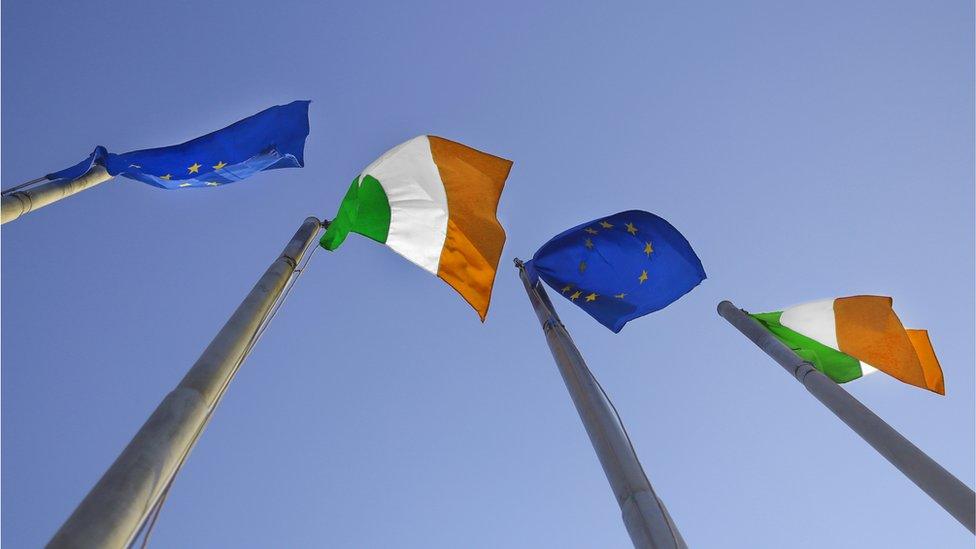
- Published18 December 2018
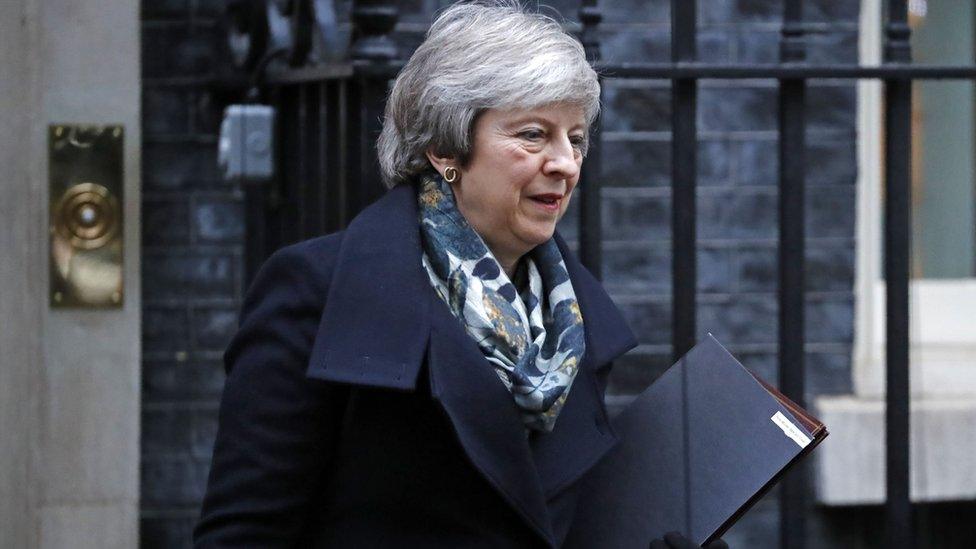
- Published19 December 2018
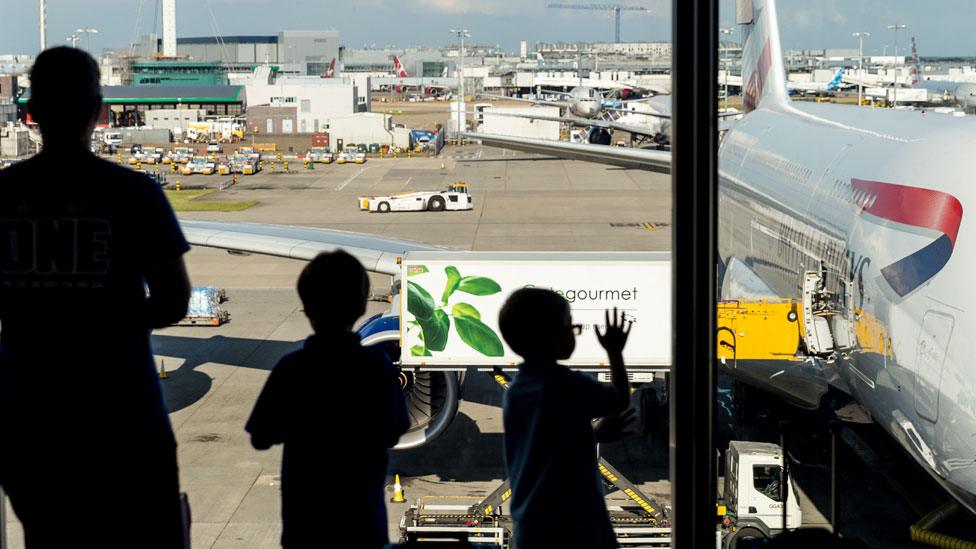
- Published13 December 2020
